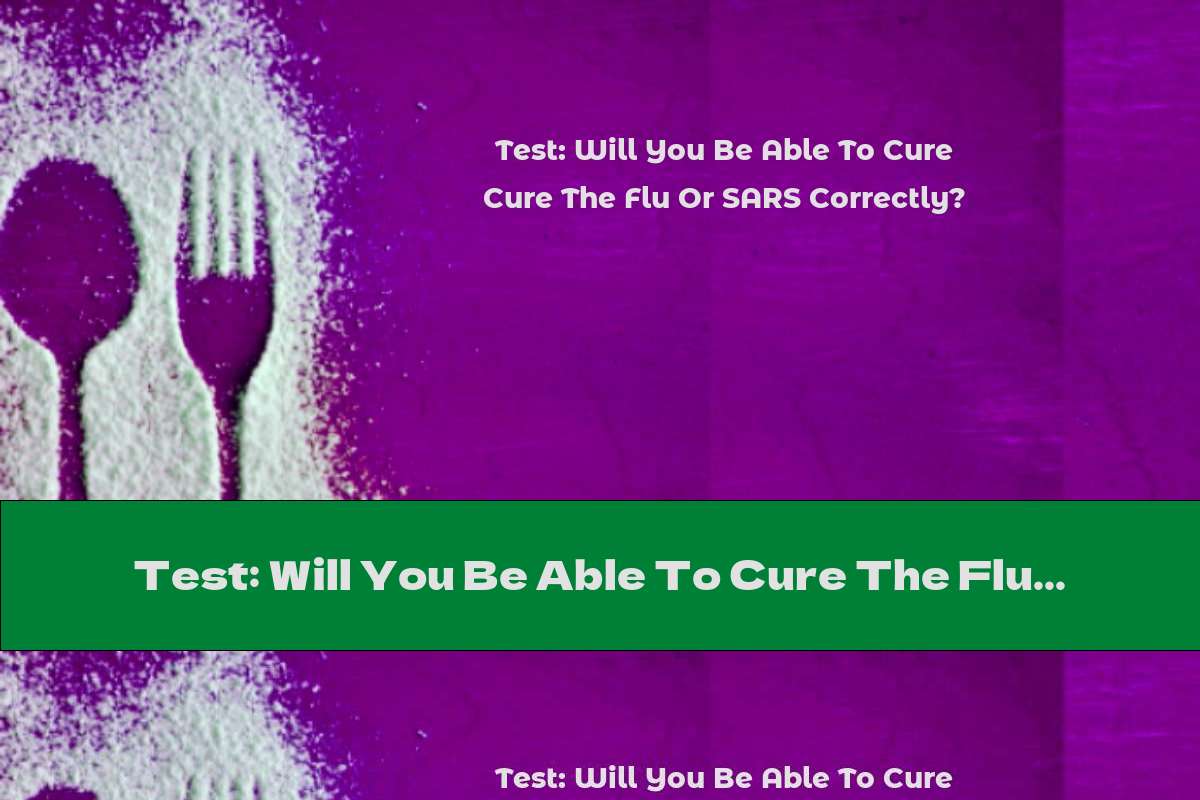Test: Will You Be Able To Cure The Flu Or SARS Correctly?
 Author: Victoria Aly
Time for reading: ~2
minutes
Last Updated:
February 16, 2026
Author: Victoria Aly
Time for reading: ~2
minutes
Last Updated:
February 16, 2026

Improper treatment of flu and SARS threatens complications. Do you know how and what to treat the flu during the epidemic season? Pass a health test
Most recently, the Ministry of Health of Ukraine updated recommendations for doctors regarding the correct treatment of influenza and SARS. But if even specialists need to be reminded of the norms of evidence-based medicine from time to time, what can we expect from the general population?
- Vaccination is the best way to prevent influenza, and its effectiveness has been confirmed by the World Health Organization. Antiviral drugs are available for treatment, but flu viruses can develop drug resistance.
- Most people recover within a week without any medical attention. But influenza can lead to the development of severe illness or death in people from high-risk groups (the elderly, pregnant women, children under 5 years old, chronically ill patients with a weakened immune system), so they are recommended to be vaccinated every year.
- Influenza is spread by airborne droplets. When an infected person coughs and sneezes, droplets containing the virus enter the air. One sneeze in the subway or bus during rush hour is enough to infect 150 people. The virus can also be transmitted through hands. To prevent transmission, people should cover their mouth and nose when coughing with a tissue and wash their hands regularly. There is no particular need for healthy people to wear a medical mask: sick people need it to avoid spreading the virus with their saliva.
- With the help of antiviral drugs against the flu, the disease can be effectively prevented and treated. They should be taken, if possible, in the early stages of the disease (within 48 hours after the onset of symptoms). There are two classes of such drugs: 1) adamantanes (amantadine and rimantadine); 2) influenza neuraminidase inhibitors (oseltamivir and zanamivir, as well as peramivir and laninamivir, licensed in some countries).
- According to the European medical protocols, during uncomplicated influenza and SARS, patients are not recommended to take immunomodulators, immunostimulators, Buds, homeopathic remedies, vitamins, expectorants, antibiotics, and antihistamines.
- If you are sick, make a sick leave and stay at home until all the symptoms of the infection have passed. Drink alkaline mineral water, warm compotes, tea, decoction of dried fruits. Ventilate the room regularly, make sure the air is moist.
- Rinse the nose with saline solutions. There is no point in distracting procedures (inhalations with hot steam, mustard seeds, cans).
- You can lower the temperature if it causes you significant discomfort. For this, you need to use paracetamol or ibuprofen. Aspirin does not lower the temperature.
- And one more time. Viral infections are not treated with antibiotics. Not only will they not reduce the risk of complications, but they can seriously harm your health.
Related Articles
- The Power of Allium Vegetables: Health Benefits and Recipes
- Nutritional Benefits of Vegetable Glycerin: Uses, Diets, and Recipes
- The Power of Chicken and Vegetables: A Nutritional Guide
- Nutrition Trends 2026: Creating Healthy and Sustainable Eating Habits
- The Power of Chicken and Vegetables in Nutrition | Benefits & Recipes
Top Nutrition Articles Today
- . The Benefits of Myra E: A Powerful Vitamin E Supplement
- . Granadilla - Health Benefits
- . Nutrition Trends for 2026: Superfoods, Recipes, and Balanced...
- . Nutrition Trends 2026: Diet Plans, Recipes, and Wellness Tip...
- . The Nutritional Benefits of Quaker Oats: A Complete Guide
- . The Power of Nori: Health Benefits and Nutritional Value
- . The Role of Micronutrients in Chicken: A Comprehensive Guide
- . E481: Uses, Benefits, Side Effects, and Safety Regulations
- . First Complementary Foods: What And When To Give A Child (wi...
- . Plain Bagel Calories